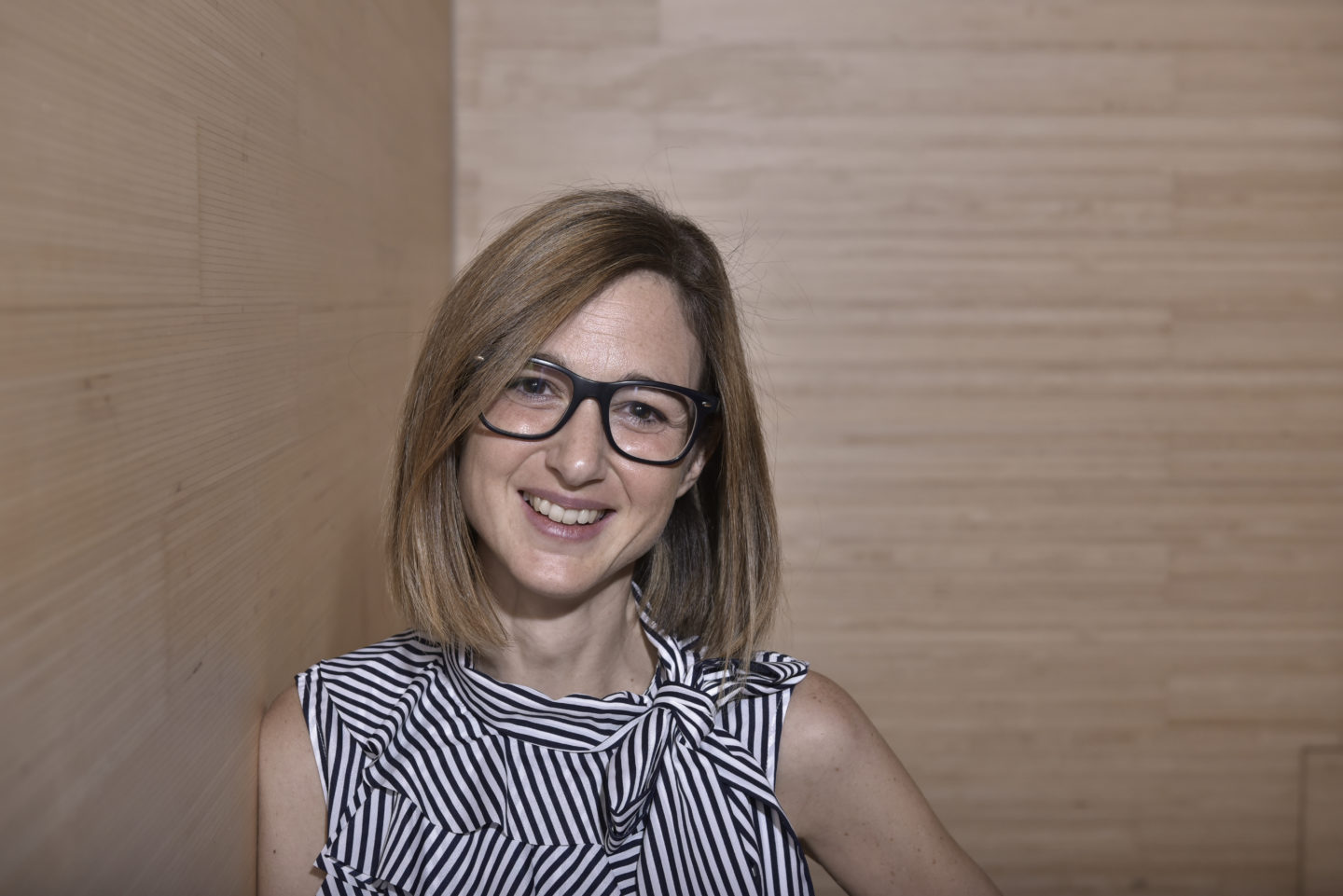INMA SANCHEZ ROMERO

WHERE?
- RESEARCH SERVICES, UNIVERSITY OF VIENNA, AUSTRIA
AREA OF WORK
- ASSISTANT PROJECT MANAGER OF THE INDICAR (INTER DISCIPLINARY CANCER RESEARCH) POSTDOCTORAL FELLOWSHIP PROGRAMME OF THE UNIVERSITY OF VIENNA AND THE TECHNOLOGY TRANSFER OFFICE
- PROJECT MANAGEMENT
- FINANCIAL MANAGEMENT
- ORGANIZING WORKSHOPS AND OUTREACH ACTIVITIES
- WRITING AND APPLYING FOR FUNDING
AT IST AUSTRIA
- POSTDOC (2017)
- JANOVJAK GROUP
Inma Sanchez Romero was a Postdoc at IST Austria. She now works for the research Services of the University of Vienna, as an Assistant Project Manager of the INDICAR (Inter Disciplinary Cancer Research) Postdoctoral Fellowship Programme of the University of Vienna and the Technology Transfer Office. At IST Austria Inma Sanchez Romero was in Harald Janovjak’s group.
In an interview with Daniela Klammer and Kathrin Pauser which took place during the Science and Industry Day 2017 she answered some interesting questions about her work and her decision to switch from a scientific career to supporting science in a different way.
WHAT’S WRITTEN ON YOUR BUSINESS CARD?
I work in research project management at the University of Vienna. Specifically, I work for a postdoctoral fellowship program called INDICAR (INterDIsciplinary CAncer Research), which is co-funded by the EU Framework Programme 7 (FP7) Marie Curie Actions.
So, on my business card it’s written my name, Ing. Inmaculada Sanchez Romero, PhD, and my position, INDICAR Assistant project manager.
WHAT’S THE ESSENCE OF YOUR JOB?
My job is to support the INDICAR program and its fellows by looking for funding opportunities, writing and submitting proposals, and organizing outreach activities to disseminate information about our program and our fellows’ research. For example, I organize workshops to develop and strengthen our fellows’ skills.
WHAT DO YOU REALLY LIKE ABOUT YOUR JOB?
There are two things that I really like about my job. One of them is organizing workshops and scientific events. And the second is that I like to think that I can have a positive impact on our fellows’ careers by looking for funding opportunities for them or by contributing to their professional development, by organizing workshops and outreach activities.
WHAT ARE THE CHALLENGES?
I think there are only a few positions in research project management. Once the transition is made, your professional profile becomes very specific. That might be a problem when looking for a position in another country or at another company.
WHERE DO YOU SEE YOURSELF IN THE FUTURE?
I see myself working in research project management in an academic environment managing a research program and supporting its fellows.
WHAT IS YOUR ACADEMIC BACKGROUND?
I studied chemical engineering at the University of Granada in Spain, where I also did my masters in biotechnology. Then I obtained my PHD in chemistry working on protein engineering at the University of Granada in collaboration with Columbia University in New York, where I had three short-term research visits, and the Danish biotech company Novozymes Then later I did my postdoc at IST Austria working in synthetic biology in the Janovjak lab.
WHAT ROLE DID IST PLAY FOR YOUR CAREER?
Besides all the support in scientific research at IST, I had the opportunity to collaborate and plan and organize scientific events. As a result, I explored and developed my organizational and management skills. That made me realize that I wanted to focus my career in that direction.
GIVE 3 PIECES OF ADVICE TO CURRENT IST MEMBERS
Work on your career development to obtain a good-sized set of transferable skills, not only by participating in workshops, but also by getting experience through volunteering, for example by organizing scientific events. Here at IST Austria there are a lot of opportunities for that.
The second one is to network, to attend conferences and workshops, to talk to people and create a solid network of contacts.
The third one is for people who are considering leaving academia. I would like them to know that they shouldn’t be afraid of the unknown. That leaving academia doesn’t mean that they have failed. It just means that they have other interests. It takes a lot of courage to follow your dreams and leave your comfort zone and to be willing to explore other possibilities.
WHAT IS YOUR FAVORITE MEMORY OF IST AUSTRIA?
One of my favorite moments at IST Austria was at the Young Scientists’ Symposium. I was part of the organizing committee. After all the work and all the effort organizing, it was amazing to see that it was something real. That it was happening and everything was working perfectly. The speakers and the attendees were really satisfied with the event. It was a rewarding moment and an amazing experience.


